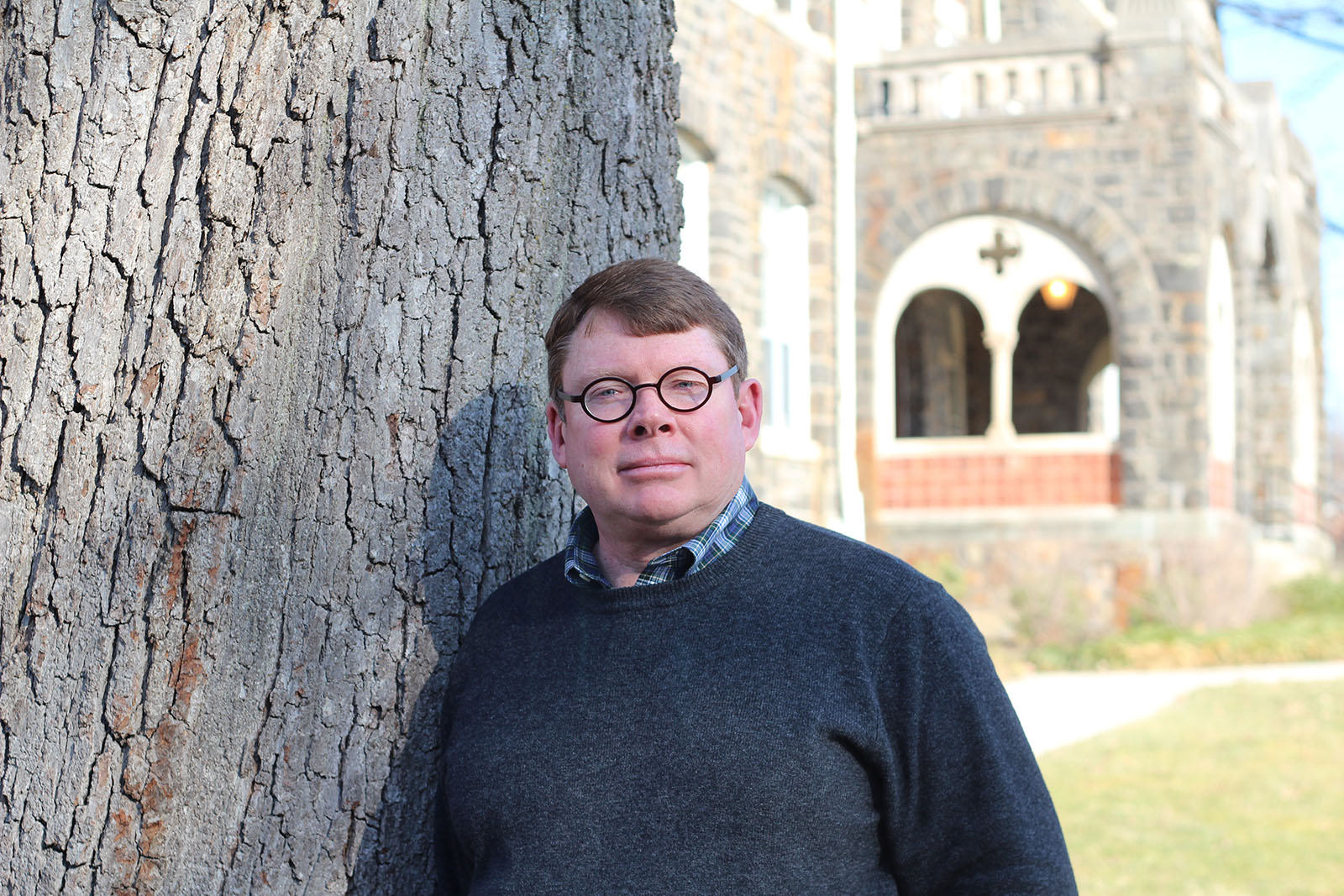
Students and colleagues from the Department of Psychology were active participants in this year’s Annual Meeting of the Eastern Psychological Association (EPA) in New York City. Held at the Marriott Marquis Hotel in Times Square from February 28 – March 2, EPA is the oldest regional psychological association in the US.
Dana S. Dunn, professor of psychology a Moravian College, served as EPA President this year; he was elected in 2018. He chose this year’s conference theme—Psychology and Constructive Change. Dunn’s Presidential Address was titled “The Invisible Minority: Constructively Coping with Ableism.” Dunn also organized a Presidential Symposium, where three speakers—Susan Nolan (Seton Hall University), Kathleen Bogart (Oregon State University), and Rena Subotnik (American Psychological Association)—spoke on their scholarship that touched on the conference theme of constructive change using psychology.
Colleagues from the Department of Psychology and their students presented posters or gave an oral presentation at EPA. Here are the abstracts from their presentations:
Noah Reiss ’20 and Dietlinde Heilmayr, assistant professor of health psychology
“The Effects of Interpersonal Engagement on Life Satisfaction and Meaning”
The present study seeks to address whether the quality of interaction with others relates to changes in health and well-being over a two-week period. It was found that interpersonal engagement was negatively correlated to change in satisfaction with life (r = -0.253) and meaning and purpose with life to a very small degree (r = -0.071) but not at a statistically significant level. There remains much that can further explore in this relationship.
Adrianna Mantz ’19 and Dietlinde Heilmayr
“The Relationship between Nature Features and Changes in Health”
The present study evaluates changes in health in participants who were instructed to spend time in nature. More specifically, we evaluated whether different natural elements relate to changes in health. We hypothesized that natural features such as water, vegetation, and open fields would relate more strongly to a participant’s change in health as compared to man-made objects and other people. We found no statistically significant correlation between nature features and changes in health.
Hailee Yoder ’19 and Dietlinde Heilmayr
“Monetary Spending in Acts of Kindness and Well-Being”
Conducting acts of kindness for others has been found to be beneficial for well-being, however these benefits may vary depending on the type of act. Participants (N = 65) engaged in a two-week acts of kindness intervention and completed the measures of well-being at baseline and posttest. They also completed activity logs, which were coded for monetary spending. Monetary spending was negatively correlated with respect and optimism, but not related to other measures of well-being.
Dietlinde Heilmayr
“The Personality of Environmentalists”
How does personality relate to environmental identity and behavior? Participants (N = 114) completed measures of the Big Five personality traits, connectedness to nature (CN), environmental identity, (EI) and time spent in nature. Openness, agreeableness, and conscientiousness were positively related to EI and CN, but not to time in nature. Extraversion positively related to time in nature, but not to EI nor to CN; neuroticism negatively correlated with all three environmental measures.
Hunter Runge ’19, Crystal Yautz ’20, Sarah DeFranco ’18, and Sarah Johnson, associate professor of psychology
“Perceptions of Sexual Assault”
We explored the interactions between victim and perpetrator gender, and the impact of a legal or social frame, in relation to perceptions of sexual assault in written scenarios. Victim gender had an impact on both legal and social perceptions: participants were more likely to view sexual assault as a crime and had less positive social attitudes about the perpetrator when the victim was female rather than male.
Stacey B. Zaremba, professor of psychology, and Rachel Ernest
“Reading Circle Intervention to Decrease Racial Bias in Children”
This study examined the effectiveness of a six-week storybook intervention program designed to decrease racial bias in children. The participants were 36 third -fifth grade students. The children were read books with a theme of tolerance over a six-week period followed by a discussion of the story. Racial attitudes were assessed both before and after the intervention with the Multi-response Racial Attitude measure (MRA). Data analysis indicated that the intervention was not effective at decreasing racial bias. The only significant shift was observed for the image of the white child with favorable attributes decreasing from the pre to post-test assessment.
Michelle Schmidt, professor of psychology
“A Learning Community Pairing of Introductory Psychology and First Year Writing Seminar”
Abstract: Incoming first year students are often required to enroll in a first year writing course; they may also desire to start their psychology coursework early in their college career. This paper describes a learning community in which students co-enroll in a required writing course and introductory psychology as first year students. The two courses are separate but complement one another well, and allow students to get a head start in their major area of study.
Julian Phipps ’20 and Robert Brill, associate professor of psychology
“The Role and Impact of Emotions in the Workplace: An Exploratory Study.”
Phipps and Brill conducted a content thematic analysis of statements provided by 32 full time employees in 28 different occupations. The statements were archived as part of a job analysis project conducted by students in Industrial / Organizational Psychology. The findings found strong support for three themes emerging in the research literature on emotional labor: emotion-focused coping, surface acting, and emotional contagion.
This year’s Presidential Reception was held at the elegant and storied Estonian Club. All of the invited speakers, members of the EPA Board, members of Moravian’s Department of Psychology, sponsors (including Moravian College and Worth/Macmillan, one of Dunn’s publishers), and past EPA Presidents enjoyed great food, drink, and conversation for several hours on Saturday evening.